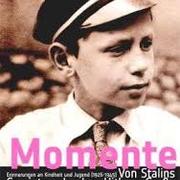
It is with great sadness that the Department of Slavic Languages and Literatures at Harvard University announces the death of Jurij Striedter, Curt Hugo Reisinger Professor of Slavic Languages and Literatures and Professor of Comparative Literature, Emeritus. Striedter passed away at his home in Tampa, Florida.
Striedter was at home in Germany at least as much as he was in the United States. He was born in Novgorod, Russia, but lived and was educated largely in Germany. In 1953 he received his Dr. phil. from the University of Heidelberg. After graduating, he accepted a post-doctoral fellowship with the German Research Society at the Free University in West Berlin, where he earned his Habilitation, pro venia legendi, in Slavic Literatures. He was Professor of Slavic Literatures at the Free University through the first half of the 1960s, after which he became Professor of Literature at the University of Konstanz until 1976. At Konstanz he was a member—along with Wolfgang Iser, Hans-Robert Jauss, and others—of the influential group of scholars that came to be known as the “Konstanz School” of reception aesthetics. In 1977 he accepted a position at Harvard, where he remained until his retirement in 1995.
He was a prolific and influential scholar who was noted for his remarkable generosity. Among his German-language monographs were Die Fragmente des Novalis als “Präfigurationen” seiner Dichtung, Der Schelmenroman in Russland, and Dichtung und Geschichte bei Pushkin. His role as a scholar of Russian Formalism and Czech Structuralism is well known. He edited and introduced the key volumes: Texte der russischen Formalisten and Felix Vodicka. Strukturen literarischer Entwicklung. His English-language work, Literary Structure, Evolution, and Value: Russian Formalism and Czech Structuralism Reconsidered, was for many the best work written on the subject.
Although his scholarship remained perhaps most influential in Germany, Striedter fully embraced life at Harvard, where he dedicated himself especially to helping younger colleagues, graduate students, and undergraduates. He was, with his wife Emanuela, co-master of Cabot House for nearly a decade. And he was a key faculty member not just in Slavic and Comparative Literature but also in the undergraduate Literature concentration. For many years a Senior Fellow in the Harvard Society of Fellows, Striedter was known for his capacious intellect and his willingness to share his time with young scholars.
In retirement Striedter continued to write and conduct research. Both his book on the Russian picaresque, and his memoirs, 1926-1945, appeared in Russian translation in the last decade.